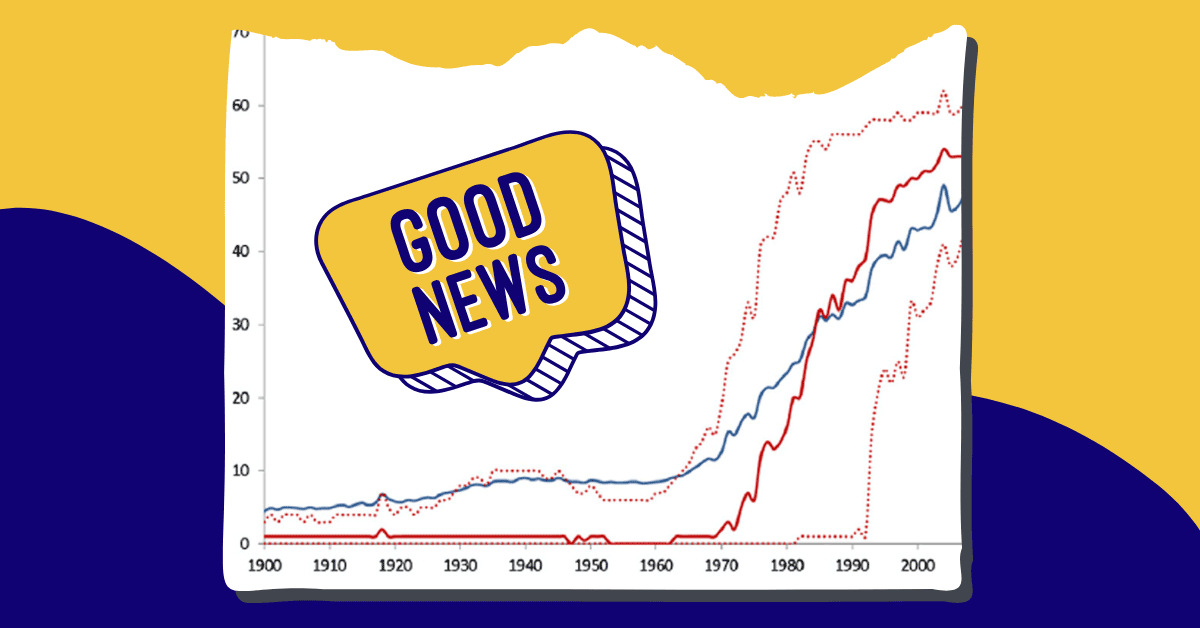“Hey bartender. You assume that I cannot drink a margarita, so you don’t serve me a margarita, so I don’t drink a margarita,” says actress Madison Tevlin in the new viral ad campaign ASSUME THAT I CAN. “Your assumption becomes reality.”

The ad — made by CoorDown and Indiana Productions — goes on to lay out all of the limitations placed on people with Down syndrome that occur when parents, teachers, and peers operate on outdated assumptions — and what happens when those limits stop.
“Assume that I can live on my own, so I live on my own,” continues Tevlin. “Assume that I can hit harder, so I hit harder. Assume that I can learn Shakespeare, so? I learn f—ing Shakespeare!”

Tevlin, who starred in Woody Harrelson’s sports comedy “Champions”, also wrote an essay for Porter that addressed the limitations that have been placed on her since birth.
“When I was born, the doctor told Mom and Dad that life would be hard for me,” wrote Tevlin. “They were told that I may never talk or walk, and I may never be able to hold a job. If only that doctor could see me now. I certainly talk and I definitely walk. In fact, I just walked a red carpet.”
Down syndrome impacts each individual on a spectrum of cognitive and social levels, but they are typically treated as a monolith.
Instead of being given a range of support and accommodation, people with Down syndrome are often drastically underestimated, infantilized, and even ridiculed based on other’s lowest assumptions — at home, in schools, and even in the medical system.
For years, Indiana Production has been working with CoorDown — an Italian nonprofit that advocates for those with Down syndrome — on PSAs that are tied to World Down Syndrome Day on March 21.
Since 2012, the holiday (which is represented by the digits 3-2-1) has been celebrated worldwide as a nod to the syndrome’s triplication of the 21st chromosome.
Made in partnership with the Canadian Down Syndrome Society, Down Syndrome Australia, Fundació Catalana Síndrome de Down, and many more, the “ASSUME THAT I CAN” commercial and awareness campaign is truly a global collaboration.

When it came to this year’s video, Karim Bartoletti — a managing director and executive producer at Indiana Production — adopted its message into “every aspect of production.”
“‘You assume that I will shoot this campaign like any other commercial that deals with disabilities?’ ‘You assume we cannot find an actor or actress that can carry the weight of the whole film on his or her shoulder?’” posed Bartoletti. “If we want to create awareness and break boundaries through the work that we create and produce, we need to do it ourselves.”
“We assumed we could and we certainly did, because it certainly shows in the originality and power and creative strength of this year’s CoorDown World Down Syndrome Day campaign.”

The PSA was also made in partnership with SMALL, an ad agency based in New York. When making the commercial, SMALL’s executive directors Luca Lorenzini and Luca Pannese said that they took inspiration from a speech 25-year-old Marta Sodano delivered to the United Nations in 2019.
Sodano’s speech, titled “Leave no one behind in Education,” touched on the frustration and injustice she felt growing up in a world held back by stereotypes.
“I discovered that in psychology there is a concept called ‘self-fulfilling prophecy,’ whereby a teacher who thinks that a student cannot understand would just act accordingly and therefore they would not teach the student,” said Sodano. “And there you go: the prophecy self-fulfills.”
“But in my opinion, there are no difficult or easy concepts, there is always a simple way to explain things. If I think of all the things that were not explained and taught to me, well I really get angry.”
That same righteous anger is channeled in the “ASSUME THAT I CAN” video, as Tevlin fiercely challenges viewers to step outside of their preconceived notions.

Posted on March 14, the video is spreading across every facet of the internet, with a TikTok clip already garnering 4.2 million views. The response across all mediums of social media has been overwhelmingly positive.
“This is just so good,” wrote one commenter on Facebook. “People with disabilities are constantly underestimated!”
“Wish my parents had seen this,” said one Reddit user.
“If you don’t give people opportunities, how will they ever grow?” asked an Instagram user.
“I’m an adult with Cerebral Palsy and use a wheelchair, and I can relate to this too,” another person commented on TikTok. “People with all disabilities are beautiful and we can do anything!”





